Rainbow and lonely
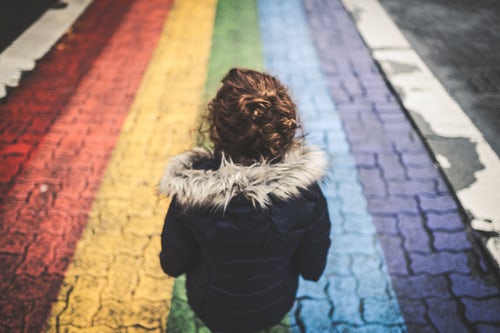
Let’s not get hung up on the acronyms; and rather focus on the importance of how little is known by so many of the population about Rainbow’s complexity; and how lonely it can be for many people to keep who they really are a secret… sometimes for their whole lives.
Scratching the surface of being lonely
Just as you might find it hard to understand how people who were always clear about their sexual identity might be lonely, it’s also hard for them to really grasp how very lonely you might be: what it’s like:
Locked in a mind battle
...trying to suppress those thoughts about feeling like you don’t fit in.
Having to face
...going to another counselling session, and trying to work out what you’ll tell your work-mates where you’ll be.
Frustrated
... having finally confided in friends, and now you sense they can’t see you in any other way than being gay - it’s all they want to talk about.
Lacking courage
...being engaged, and still not telling your fiancé that you were born with genitalia complications and had to have several operations to be “a girl”.
Anxiously wishing
... your parents would speak to you again since they found out that you were having sexual relationships with both men and women.
Identifying as or being a Rainbow New Zealander gives rise to many challenges with regard to feeling lonely...
… and in addition to these, you undoubtedly identify with many of the same loneliness problems that aren’t related to sexual orientation, gender identity, gender expression or sex characteristics.
Different people who may identify as Rainbow New Zealand
Akava’ine, Asexual, Bisexual, Fa’afatama, Fa’afafine, Fakafifine, Fakaleiti, Ftm, Gay, Genderfluid, Genderqueer, Homosexual, Intersex, Inquiring, Leiti, Lesbian, Mahu, Palopa, Mtf, Non-Binary, Pansexual, Queer, Takatāpui, Tangata Ira Tane, Tongzh, Trans, Transgender, Transsexual, Vakasalewa, Whakawahine
Prevalence of loneliness
Māori have long recognised takatāpui as a way of life. New Zealand outlawed discrimination of sex and sexual orientation as part of the Human Rights Act. Nonetheless as a population we still have great sensitivity answering survey questions on gender identity and sexual orientation. Nevertheless, in the 2018 General Social Survey we showed for the first time how lonely we can be. Bisexual and other sexual identities had the highest prevalence of feeling lonely most/all the time of the 65 demographic groups that make up the survey. Unfortunately there was insufficient data to know how lonely are gay or lesbian sexual identities.

Academic research by Lara Greaves, as part of the New Zealand Attitudes and Values Study, did give some feedback that almost 6% of the respondents identified as not being straight heterosexual: 2.6% responded that they as gay or lesbian, 1.8% bisexual, 0.6% bicurious, 0.5% pansexual and 0.3% asexual. While each of these numbers is small, as a minority group, you as a Rainbow person are amongst substantial thousands of people. And as someone from a minority group, you have our empathy… we know you are more apt to suffer from loneliness, and it’s reasonable to expect that many of those who responded in the study have already experienced considerable loneliness.
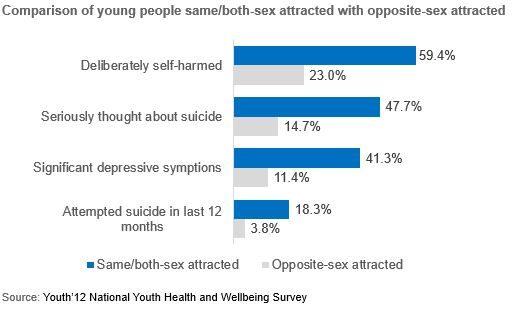
What is particularly frightening is the loneliness that any of you in this group must have felt when you were self-harming, seriously thinking if suicide, becoming increasingly depressed. We feel despair knowing that your loneliness might have ultimately led to attempts of suicide
While we are aware that you could still feel lonely [and even become lonelier] within a group, especially when there are such wide differences for how you might identify as being a Rainbow person, there is something positive in there being more LBGTQI+ groups in New Zealand.
These are some of the current NZ Facebook groups with numbers of members or followers:
Mr Gay New Zealand (2,567); Rainbow Labour New Zealand (2,403); Rainbow Greens of Aotearoa New Zealand (1,427); Rainbow Wellington (1,154); Transgender and Intersex NZ (785); Gay and Lesbian Doctors New Zealand (500); LGBT+ Youth New Zealand (478); Parents and Friends of Lesbians and Gays Palmerston North (241); Deaf Rainbow LGBT of New Zealand (211); and NZ Lesbian/Bi Dating (147).
In 2008, only 400 to 800 people belonged to trans organisations.
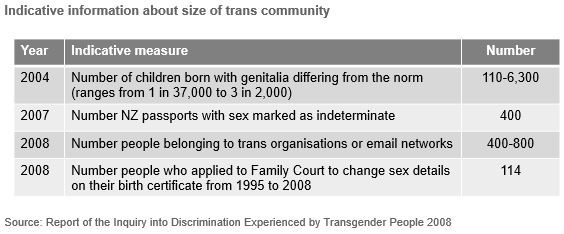
Exposing loneliness
Feeling socially isolated occurs when people, like you, are not connected into their communities in a meaningful way. And you feel lonelier when the quality of your relationships deterioriate. To name a few, loneliness in the LBGTQI+ might be exacerbated when:
- they are in any public facility which only recognises male and female toilet facilities, and they feel as if they have to pick the one that fits their public persona, not who they really are.
- he overhears parents fighting about who is to blame for him turning out to be a …. well, he is sickened by the word his father used.
- just by that look and tone you know you and your same sex partner are not welcomed to the B&B in the same way as other married couples.
- your children feel betrayed, as if their life is a lie because you only “decided” when you were in your forties that you were transgender.
- you’ve hidden your lesbian relationships from the world, and you have a great fear of that being discovered when you are in the retirement village where you will be under scrutiny.
- all your friends are in heterosexual relationships and with your community being so small you’d have to move away from home for any chance of finding love with another gay person.
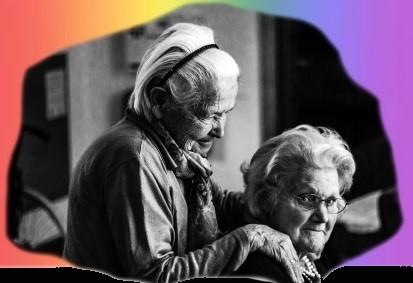
These are very real issues for you;
and some are not quick fixes! So despite these challenges it’s vital you actively find ways to ensure that you – and those around you – are emotionally healthy.
Exhibiting signs of being lonely
Solitude is very important for people to reflect and to come to grips with their situation. Being alone for short periods are also not necessarily unhealthy. What we are considering is the type of loneliness which is prolonged and might be damaging to an individual’s health and wellbeing.
Some people talk about their loneliness; other’s don’t; Some might not recognise that they are actually suffering from loneliness.
When people, like you, are already lonely, having people around you that you aren’t able to connect with on a deeper level, might even make your loneliness worse.
Research has shown that when socially isolated people aren’t getting enough regular human contact that can create problems with their family members and people who they do end up talking to.
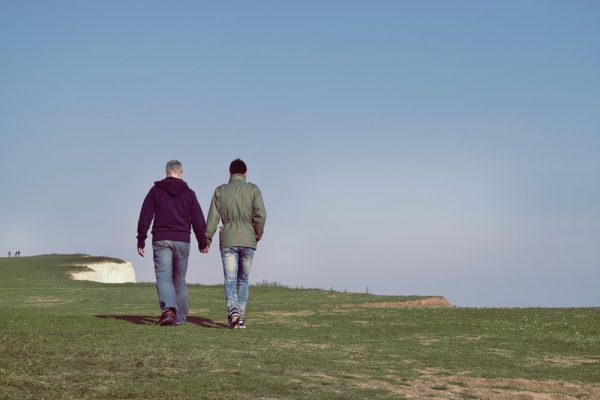
This manifests behaviour such as:
- Not joining in at social events because it’s expected that you be a couple… worse still… a heterosexual couple.
- Getting into a physical fight after being provoked with a poor taste joke about you being gay.
- Hanging out with someone violent… but she’s the only other person you know going through a similar identity crises, and its only when she’s in one of her drug-moods.
- Avoiding your parents because you can’t face telling the truth about yourself, and you feel you are lying to them by not saying anything.
- Not looking after your health… it took so long to pluck up the courage to go on a date with another man, you just aren’t going to insist he does use a condom.
- Getting angry with people when they have discussions on relationships; you’re sick and tired of feeling pressured to get a boyfriend when you know you just aren’t attracted to men.
These are just the surface of the ways you might be showing signs of being lonely… and that you could recognise in others.
So where to from here?
Conquering loneliness
We appreciate…
you all have a unique story.
How long you have been lonely; What you believe causes your particular loneliness; and what you have already tried to alleviate the loneliness.

To get to the heart of your loneliness we would like to get to know you!
Your personality, your eccentricities, and your values are all part of what makes you feel your loneliness more than some others.
Your next step
People feel lonely for many reasons. To learn more about other minority and lonely categories, select one of the coloured boxes below, or scroll down the “I’m feeling lonely” menu.
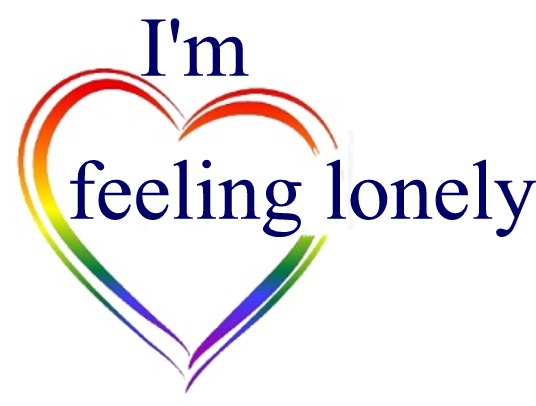
With our help you can conquer your loneliness by taking better care of your inner self.
And we can conquer loneliness in New Zealand by better understanding and accepting each other.
So when you are ready…click here.
We look forward to hearing your view of the world!
University of Auckland, Youth ’12 National youth health and wellbeing survey: Vulnerable groups or populations of young people.
Human Rights Commission (2008), Report of the inquiry into discrimination experienced by transgender people.
